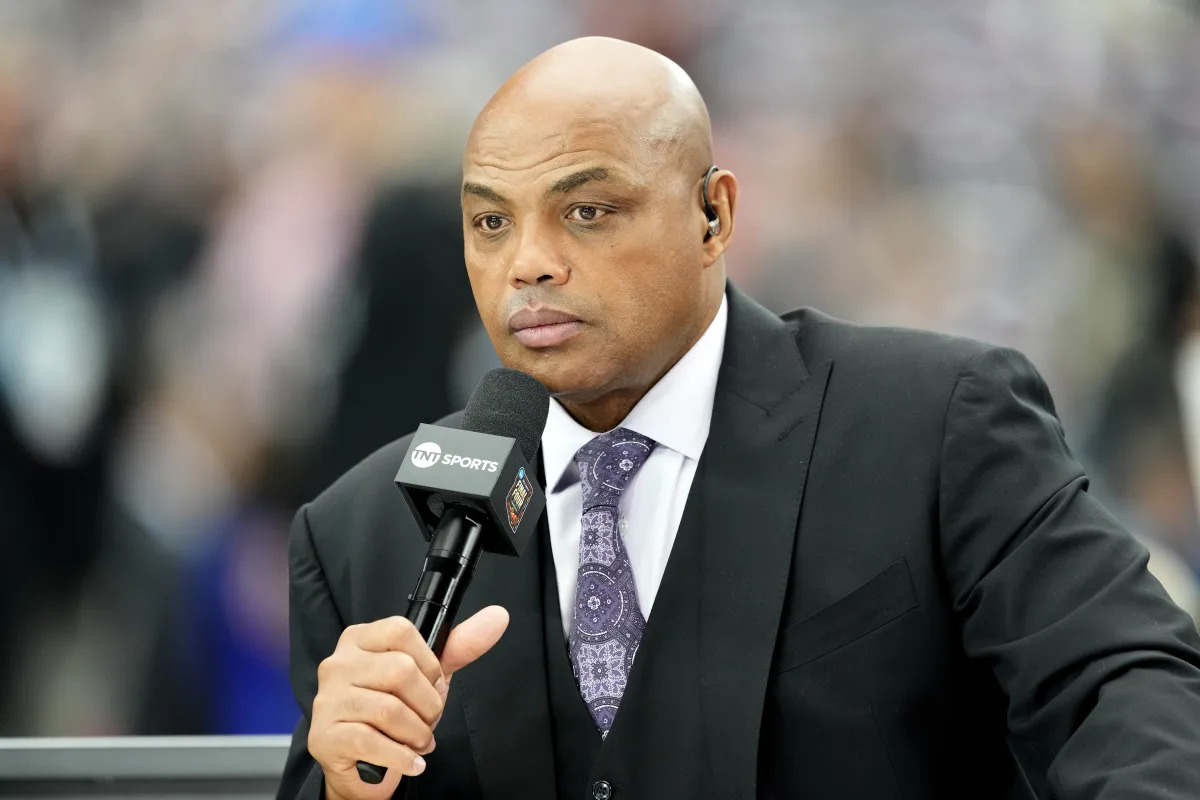Charles Barkley, never one to mince words, has once again stirred the pot with his candid comments on the Los Angeles Lakers and his future employer, ESPN. As the Lakers teeter on the brink of elimination, Barkley’s critique highlights potential issues with the team’s composition and the media’s often hyperbolic coverage. This article delves into Barkley’s assessment, exploring the Lakers’ current struggles, the impact of LeBron James’ age, and the implications of Barkley’s upcoming move to ESPN.
Barkley’s blunt opinions carry weight, given his extensive experience and insightful analysis of the game. His perspective offers a counterpoint to the prevailing narratives, prompting a closer examination of the Lakers’ vulnerabilities and the challenges they face in a competitive NBA landscape. Moreover, his remarks about ESPN shed light on the network’s coverage tendencies and the dynamics between analysts and teams.
Barkley’s Lakers Assessment
Barkley didn’t hold back on “The Dan Patrick Show,” stating that the Lakers “aren’t a good team.” He acknowledged the presence of “two really, really good players,” presumably referring to LeBron James and Luka Dončić but emphasized the lack of overall team cohesion. He predicted an early playoff exit, suggesting the Lakers are “going to lose either this round or next round, but more likely this round.”
This assessment highlights a critical issue: relying on individual brilliance rather than a well-rounded team. Barkley’s point underscores the importance of complementary players and strategic depth in achieving sustained success. His critique directly challenges the notion that star power alone guarantees victory in the NBA.
“The Lakers aren’t a good team. They got two really, really good players, but not a good team.” – Charles Barkley
LeBron James’ Age Factor
Barkley specifically addressed the challenge of building a contender around a 40-year-old LeBron James. He argued that “Your best player can’t be 40. That makes no sense whatsoever.” This raises questions about the Lakers’ long-term strategy and their ability to maximize James’ remaining years in the league.
While James continues to defy Father Time, Barkley’s point is valid. Relying heavily on an aging superstar can limit a team’s flexibility and create vulnerabilities against younger, more athletic opponents. It also requires a delicate balance between providing James with support and developing the team’s future core.
JJ Redick’s Coaching Decisions
Barkley also criticized JJ Redick’s coaching decisions, specifically his choice to play the same five players for the entire second half of Game 4. Barkley believes this decision “affected them down the stretch the other night,” leading to missed layups and mental mistakes.
This criticism touches on the importance of roster management and player fatigue during the playoffs. Barkley suggests that Redick’s inflexibility may have cost the Lakers the game, highlighting the need for adjustments and strategic substitutions to maintain player freshness and optimize performance.
Barkley’s ESPN Comments
Barkley didn’t shy away from criticizing his future employer, ESPN. He accused the network of “swinging on them like everything tastes like chicken,” implying that ESPN’s Lakers coverage is often biased and overly optimistic. He also took issue with ESPN’s discussion of Giannis Antetokounmpo’s future, contrasting it with the lack of similar concern for players like himself during his prime.
These comments highlight the complex relationship between media outlets and the teams they cover. Barkley’s critique suggests that ESPN’s coverage may be driven by ratings and market appeal rather than objective analysis. His remarks also raise questions about the network’s treatment of players and their career trajectories.
“ESPN just swings on them like everything tastes like chicken, but the Lakers are not a good team.” – Charles Barkley
Lakers’ Future Outlook
Barkley’s comments paint a bleak picture of the Lakers’ immediate future. He questions their ability to contend with the current roster and suggests that relying on a 40-year-old James is not a viable long-term strategy. He also points to potential flaws in the team’s construction, particularly the failed Mark Williams trade and the lack of a consistent presence at the center position.
Despite the presence of stars like James and Dončić, Barkley’s assessment suggests that the Lakers need to address fundamental issues to become true contenders. This includes improving their roster depth, finding complementary players, and developing a sustainable strategy for the future.
Conclusion
Charles Barkley’s scathing critique of the Lakers and ESPN offers a sobering perspective on the team’s current state and the media’s role in shaping narratives. His comments highlight the challenges of building a contender around an aging superstar, the importance of strategic coaching decisions, and the potential biases in media coverage.
Whether Barkley’s predictions come to fruition remains to be seen. However, his assessment serves as a valuable reminder that success in the NBA requires more than just star power. It demands a well-rounded team, a clear strategic vision, and a realistic understanding of the challenges that lie ahead. As the Lakers navigate their future, they would be wise to consider Barkley’s words and address the fundamental issues he has raised.

Leave a Reply